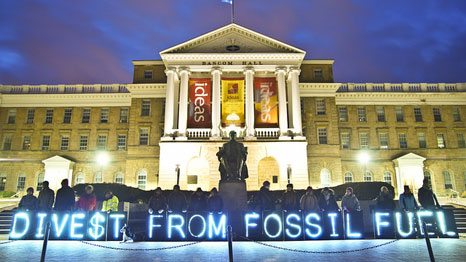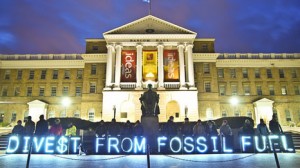May 8, 2014 – The Board of Trustees of Stanford University have decided that they will no longer include coal-mining companies in their endowment fund investments. The divestment from coal is a recognition of the impact this fossil fuel is currently having on rising levels of CO2 in the atmosphere and its correlation with global warming.
Stanford’s president, John Hennessy, in making the announcement stated the following:
“Stanford has a responsibility as a global citizen to promote sustainability for our planet, and we work intensively to do so through our research, our educational programs and our campus operations…..The university’s review has concluded that coal is one of the most carbon-intensive methods of energy generation and that other sources can be readily substituted for it. Moving away from coal in the investment context is a small, but constructive, step while work continues, at Stanford and elsewhere, to develop broadly viable sustainable energy solutions for the future.”
The decision involves divestment from 100 publicly-traded coal operations and a recommendation to Stanford’s other investment arms to avoid such companies going forward.
Influencing the decision – a student organization called Fossil free Stanford which petitioned the administration in 2013 to eliminate 200 fossil fuel companies from the endowment’s investment funds. The university listened but with a caveat. For the moment it will not divest itself of oil and natural gas investments because of insufficient alternatives to these fuels exist today.
Stanford has taken the lead here but expect others soon to follow. For example, in the last week students at Harvard University protested the administration’s $33 billion U.S. endowment investments in fossil fuel companies. More than 300 students blockaded the offices of Harvard’s president and senior administrators. And over 100 Harvard faculty have expressed their solidarity with the students. Harvard’s endowment is the largest of any university worldwide but as of yet the administration is reluctant to join with Stanford and 11 other American colleges and universities who are divesting themselves of fossil fuel companies either wholly or partially.
The divestment movement in colleges and universities is beginning to resemble the anti-war protest movement of the Vietnam War era with students mobilizing on campuses, conducting sit-ins, and going on marches. In the latest action at Harvard one of the student organizers, Chloe Maxmin stated:
“We’ve shown that Harvard would rather arrest students than join in an open debate.”
The administration’s countering argument, expressed by Drew Faust, Harvard’s president, rejects divestment because as she argues,
“Divestment is likely to have negligible financial impact on the affected companies. And such a strategy would diminish the influence or voice we might have with this industry.”
What an interesting contrast to the Stanford position which is focused on sustainability as a university-wide goal. It has adopted an innovation program that will reduce carbon emissions by 50%. And it has implemented water recovery systems on campus and is currently planning to reduce overall water use by another 15% over and above the 21% reductions achieved in the last 15 years.
Other schools adopting divestment strategies include:
- College of the Atlantic
- Foothill-De Anza Community College
- Green Mountain College
- Hampshire College
- Naropa University
- Peralta Community College
- Pitzer College
- Prescott College
- San Francisco State University
- Sterling College
- Unity College
For the fossil fuel industry which has been feeling pressure from institutional investors to address climate change and its potential impact on corporate assets, the news from Stanford is not what they want to hear. And with the latest released report assessing the current state of climate change, the fossil fuel industry cannot help but take notice. Are in the ground assets that contribute to greenhouse gas emissions now and in the future, unburnable, and therefore liabilities? It’s a fair question.





















